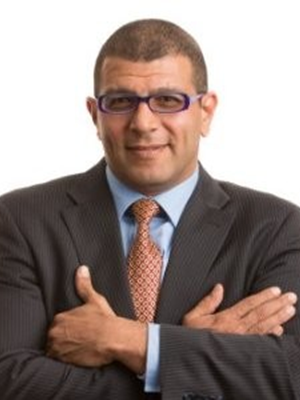Not long ago, I sat across from a young blockchain founder at a café in Warsaw during the Onchain Economy Conference. He was beaming. “We’ve just integrated zk-rollups with dynamic wallet composability across 20 chains,” he said, “to improve global financial inclusion.” I smiled politely. But what I wanted to ask was: “Can your aunt in Tel Aviv use it to buy falafel?”
Because here’s the hard truth about the crypto revolution: it's both brilliantly designed and deeply disconnected. Yes, blockchain is still the most profound general-purpose technology since the Internet. Yes, it’s on its way to reinventing money, identity, governance, and ownership. But right now, we’re stuck in an uncanny valley—where the engineering is world-class, but the human outcomes feel like a failed Kickstarter project.
Let’s zoom in. More than 2.7 million Nigerians hold over $198 million in crypto, but they still can’t use it to pay for something as basic as ChatGPT. In Ghana, 65,000 users hold $7 million, but try subscribing to Twitter Premium with stablecoins? You’re more likely to win the lottery.
That’s not a technical failure. That’s a moral one. Crypto promised to "bank the unbanked." Instead, many founders built wallets so complicated they need a PhD to use. They designed payment rails that bypassed the people who actually needed them, all while tweeting about “financial inclusion” from rooftop bars in Miami.
In truth, the unbanked don’t need your panel slides. They need working payment systems, off-ramps that don’t cost a limb, and wallets that feel like Venmo, not quantum physics.
Take the example of Polygon—a project trying to make Ethereum scalable and affordable. Through smart partnerships with firms like Addressable, they’re tracking Cost Per Wallet (CPW), a radically new metric that actually connects marketing dollars to real wallet creation, not just vanity clicks. It’s a marketing KPI built for Web3’s composable chaos—and one that could finally align incentives across growth, utility, and cost.
Get the Ynetnews app on your smartphone: Google Play: https://bit.ly/4eJ37pE | Apple App Store: https://bit.ly/3ZL7iNv
It’s smart, practical innovation like this that gives me hope. Because beneath the noise, beneath the jargon, crypto is slowly, quietly, finding its legs.
Consider this: A recent Dune Analytics report revealed that the majority of high-quality crypto users—those deeply engaged in DeFi, NFTs, and governance—are concentrated in protocol-specific ecosystems like Marinade Finance (Solana). That means users are not just gambling on tokens—they’re participating, voting, lending, and staking. They’re acting like citizens in a digital economy, not just tourists.
That’s where the next wave lies: Protocol-first, community-anchored, user-designed ecosystems. And what’s standing in the way? Not regulation. Not scalability. Not UX. It’s empathy. Crypto has a class problem. Builders are solving for 0.1% yield on U.S. treasuries while entire continents are begging for simple, reliable payment infrastructure.
 Prof. Ilan Alon Photo: Courtesy
Prof. Ilan Alon Photo: CourtesySo here’s my call: Let’s make 2025 the year of the Crypto Realists. Let’s ditch the LARPing fintech cosplay and build for the real world. Let’s measure not just DAUs, but CPW, conversion rates in Lagos, retention in Manila. Let’s treat every wallet not as an “address” but as a person.
Because the future of crypto isn’t in sharding Ethereum into a thousand threads. It’s in letting a mother in Kampala pay her child’s tuition without begging a P2P merchant or burning $7 in gas. That’s the real promise. That’s the real ROI. Let’s stop role-playing the financial revolution. Let’s start delivering it.
- Prof. Ilan Alon is a professor of Business and Economics at Ariel University and an expert on international economics and cryptocurrencies.




